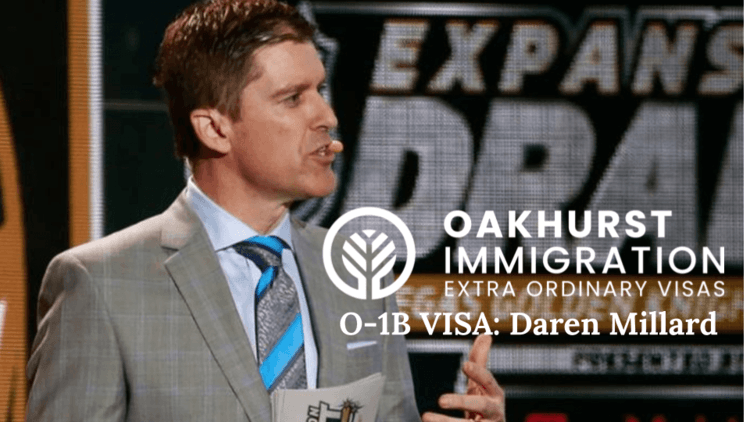
The Differences Between O-1A and O-1B Visas
Choosing the Correct O-1 Category
Why this is an important decision for foreign nationals looking to take advantage of this visa category?
Any business that requires the employment of international workers with extraordinary ability must choose the correct O-1 visa category in order to avoid poor petitions because the eligibility requirements do not match the industry trends of the O-1 beneficiary. Our entertainment immigration lawyers help clients navigate the O-1 process with confidence knowing that they are applying for visas in the categories that have the highest quality chances of getting an approved case.
In 2020, there will be more pressure on USCIS adjudication officers to apply more scrutiny to petitions in all categories, not just the O-1 visa. Extra attention to petitions is necessary.
O-1A Visa - Athletics, Education, Business, and Arts
The O-1A visa is the category with the highest eligibility requirements and, therefore, the most difficult O-1 visa to obtain. These visas are typically used by foreign nationals whose occupation has nothing to do with the arts, such as business executives, world-class athletes, and persons in academia. O-1A visas require copious amounts of evidence to prove that the beneficiary has experienced sustained international or national acclaim in their industry.
There are several categories for proof of sustained acclaim under the O-1A category and they include the following:
Receipt of a major award, such as a Nobel Prize or Olympic medal
- Or at least three of the following:
- Other international and national awards in the beneficiary’s industry
- Association with groups that require outstanding qualities for membership
- Published articles about the beneficiary and their contributions to the industry
- Tangible and intangible original contributions to science, academia, or business that are considered significant
- Authorship of articles and essays in professional media outlets
- Employment in an essential capacity
- Receiving higher compensation than peers
The O-1B visa actually has a less rigid eligibility standard than the O-1A visa for beneficiaries in either the arts, motion picture or television industries. The O-1B visa eligibility requirements are slightly altered to favor persons in the categories making it easier to meet criteria categories than the O-1A. O-1A applicants are not able to take advantage of the O-1B visa requirements because the supporting evidence for their background simply would not fit in enough categories to obtain the visa and the job title is not likely to be accepted by USCIS for the O-1B category.
O-1B visa applicants have the choice of applying for classification under the arts or as a professional in film/TV.
O-1B petitions under the arts must prove distinction, which is concerning skill, recognition, and prominence substantially beyond what typically occurs in the industry of the beneficiary. Prominence means that the foreign national is leading, well known, and/or renowned in their industry.
Eligibility Criteria for O-1B Visa Petitions in Film, Motion Pictures, and Television
- Receipt of a major award that would be the equivalent to a world championship in athletics or a grammy award in music
- Or at least three of the following:
- Previously has and will participate in critically acclaimed and prestigious events, projects, and performances.
- Significant national and international awards in the beneficiary’s field of endeavor
- Previously has or will in the future play a leading role in projects, events, and performances with prestigious companies and organizations
- Articles from third parties with reputable media outlets discussing the work of the beneficiary
- Critical reviews of the beneficiary’s work included in major media outlets, trade publications, and industry journals
- Evidence of sustained acclaim and recognition from experts, industry insiders, important organizations, and other sources
- Earning or will be earning a significantly higher wage than peers in the same industry
O-1B petitions under film, motion picture and television must prove an existing history of extraordinary achievement through unique accomplishments in motion picture and television that is significant compared to the standard professional in their field. Significance under the O-1B petition for film, motion picture, and television also means well known, leading, and/or renowned in the industry.
Eligibility criteria for O-1B visa petitions in film, motion picture, and television
Receipt of a major award such as an Emmy, Grammy, Directors Guild Award, or an Academy Award
- Or at least three of the following:
- Leading or staring previously and currently in productions, events, and projects that have a great reputation
- Significant national and international awards in the beneficiary’s field of endeavor
- Leading or starring in an essential or critical role for establishments, membership organizations, or other organizations that have a great reputation
- Participation in events and projects that earn a lot of commercial revenue and/or great reviews from credible sources
- Significant recognition for achievements in media outlets
- Receiving higher remuneration compared to peers in the industry




